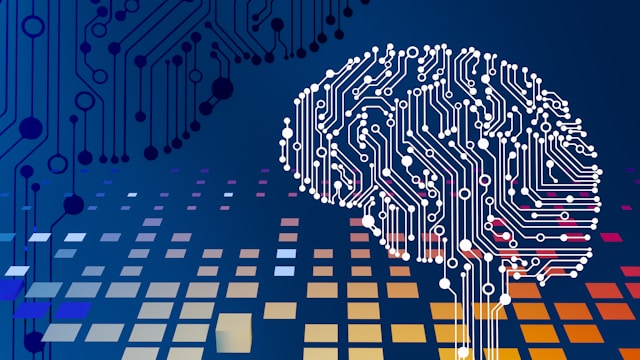The enthralling realm of Artificial Intelligence (AI), a field that perpetually bubbles with innovation and revolution, has been ceaselessly reforming the prism through which we perceive our everyday life and professional engagements. This effervescent domain, aiming to craft machinery capable of mimicking human intellect at its zenith, encompasses facets such as robotics, machine learning, natural language processing amongst others. Intricately woven into the fabric of our quotidian tasks – from sophisticated household contrivances to intricate corporate manoeuvres – the magnitude of AI’s significance is incontestably colossal.
Specifically focusing on New Zealand, there exists a profound acknowledgement towards the economic and social possibilities tethered with AI; an understanding nurtured through education. It has been observed recently that there’s been an explosive increase in prominence for AI courses within NZ’s educational landscape. These academic endeavours provide individuals with structured avenues to delve deep into both theoretical constructs and practical applications related to AI. They arm prospective candidates with essential skills required for effectively implementing AI technologies across varied sectors while simultaneously emphasizing on the pivotal role played by comprehensively informed AI education.
Exploring the Landscape of AI Education in New Zealand
In the verdant lands of New Zealand, a colossal emphasis is being lavished upon the academic schema of Artificial Intelligence. This has cultivated a fertile milieu teeming with potential for technological proliferation and invigorating exploration. The infusion of AI pedagogy into university curriculums and institutes forms an integral part of the nation’s blueprint to steer its economic vessel towards ICT and High-Tech industries’ harbours. This directional shift unfurls a plethora of inquiries in the minds of prospective students, one such query being: “Which is the most optimum course to master AI?”
While globally acclaimed establishments like University of Auckland and University of Otago proffer competitive AI programs, determining what constitutes ‘the best’ is inherently subjective. The verdict hinges largely on individual career visions, personal predilections, alongside desired depth within this vast oceanic body called knowledge. Course titles and structures exhibit considerable variability across institutions; however, they coalesce in offering comprehensive content that encompasses pivotal domains including machine learning, neural networks, robotics along with theoretical underpinnings and pragmatic applications pertinent to AI.
It becomes critically vital for aspiring learners to meticulously scrutinize program syllabi before leaping ahead – assessing whether these offerings align seamlessly with their professional ambitions nestled within the expansive realm that goes by Artificial Intelligence.
The Role of AI in New Zealand’s Economy and Industry
In the economic and industrial spheres of New Zealand, Artificial Intelligence (AI) has carved out a place that can only be described as prodigious. Traditional sectors such as agriculture, forestry, and fishing are experiencing a remarkable metamorphosis in productivity and efficiency due to the application of AI technology. However, this assimilation of AI is not merely confined within these realms; it manifests an unmistakably substantial impact on healthcare, education, tourism among others. One might find themselves mystified about which college offers the most effective AI course in order to participate in this transformative journey.
A culture of extensive collaboration between industry leaders and academic researchers pervades New Zealand’s landscape ensuring its rejuvenation through AI’s influence. This collaborative ethos also permeates into the domain of AI education with several esteemed institutions offering premier programs dedicated to this field. These dynamic courses have been tailored meticulously to arm aspiring learners with coveted skills specific to AI. The curriculum they offer reverberates real-world industrial needs thus preparing students comprehensively for guiding industries towards a future enriched by the powers of artificial intelligence.
Unveiling the Selection Criteria for AI Programs

Embarking on the scholarly journey toward becoming an AI expert can seem like navigating a labyrinth. However, grasping the prerequisites for AI programs acts as a pivotal compass in this voyage. Frequently, one finds themselves pondering over the question, “What’s the quintessential degree to morph into an AI professional?”
Primarily, acquiring a bachelor’s degree in computer science, mathematics or information technology or any analogous field builds up your initial base camp of knowledge required for venturing into artificial intelligence. These fields dive deep into crucial topics such as data organization, statistical analysis and programming which formulates the bedrock for advanced study in artificial intelligence. Additionally scaling up to a master’s degree or even summiting with a Ph.D. in Artificial Intelligence becomes highly commendable given that these higher altitudes of education usually encapsulate comprehensive exploration of AI varying from machine learning to natural language processing.
Moreover admissions panels frequently scrutinize aspects such as applicant’s grades, relevant coursework traversed during their academic journey so far and internship experiences along with research ambitions while deciding their suitability quotient for such escalated programs Therefore prospective students holding aspirations towards becoming an AI professional should contemplate upon these factors and craft their educational trajectory and industry experiences accordingly aligning them with these selection criteria.
In-depth Look at Various AI Program Structures
Traversing the maze of Artificial Intelligence instruction, one cannot help but notice the vast disparities in AI program structures. This is dependent on several factors such as; educational establishment, mode of teaching and level of study. The aim? To arm students with the required expertise, knowledge and skills to navigate the ever-fluctuating world of AI successfully. Be it a comprehensive masters course spread over a couple years or an intensive professional certification program for short-term immersion – all roads lead to cultivating future-ready AI professionals.
Would-be students frequently ponder: “Is investing time and resources in AI courses truly worthwhile?” To this question echoes a vehement ‘yes’. Far beyond simple scholarly pursuits, these courses are tailored to afford practical exposure towards comprehending and deploying AI technologies. With AI’s growing influence across diverse industry sectors comes an escalating demand for specialists equipped to handle its nuances. Therefore, channelizing resources into exhaustive training programs that encompass myriad applications and uses of AI – from machine learning to neural networks – isn’t just prescient but absolutely indispensable.
Highlighting the Top Institutions Offering AI Training
In the perplexing realm of Artificial Intelligence studies in New Zealand, a handful of establishments present themselves as vanguards within this progressively pivotal discipline. The University of Auckland punctuates its presence in this sphere with an unwavering dedication to AI investigation and a plethora of specialised programs. With cutting-edge facilities at their disposal and revered faculty members spearheading the charge, they channel significant resources towards probing deeper into AI technology’s vast potential.
Beyond that, the institution’s solid ties to the tech landscape facilitate students’ acquisition of pragmatic knowledge – giving them a taste of career-oriented experiences.
Not to be left behind in contributing to comprehensive AI education is another commendable establishment – Victoria University Wellington. Under their School of Engineering and Computer Science umbrella lies an array of diverse courses revolving around AI – from machine learning fundamentals through neural networks intricacies down to data analytics complexities.
What sets this university apart though is its ethos: it takes pride not just in equipping students with technical skills but also instilling ethical awareness related to implementing AI technology applications. Therefore, it cultivates future professionals who are capable not only technically but also ethically when dealing with nuanced aspects inherent in real-world applications involving artificial intelligence technology.
Exploring Course Content and Curriculum of AI Programs
The academic exploration of Artificial Intelligence is a complex tapestry, woven with countless diverse elements. Each thread adds to the overall understanding for those embarking on this intellectual pursuit. Generally speaking, the syllabus can be disassembled into four cardinal sectors: foundational subjects, specialized courses, research methodology and projects.
Foundational subjects set down the cornerstone of knowledge about computational systems, algorithms and data structures. Specialized instruction delves deeper still, exploring domains such as machine learning, neural networks and advanced robotics along with natural language processing.
Research methodology imparts wisdom in formulating scholarly queries, conducting literature reviews and evaluating results from investigations. Projects provide a firsthand opportunity to apply AI concepts and techniques to tackle real-world quandaries.
Scrutinizing the course content reveals an intricate blend of theory married with practice. The spotlight on mathematical and statistical principles holds significance due to AI’s data-driven core requiring a firm grip on these areas. Coding forms another key pillar within the curriculum that arms students with vital abilities needed for constructing robust AI architectures.
Adding depth are insights into ethics alongside social implications of AI which cultivate an extended perspective beyond mere technicalities. Consequently, both course content and curriculum structure in AI programs are curated with precision aimed at fostering manifold competencies; preparing pupils for our increasingly AI-dominated world.
FAQ
The role of artificial intelligence is absolutely cardinal in our contemporary existence, with its profound effect permeating sectors as varied as healthcare, education, finance and transportation. Its prowess lies in automation capabilities, ability to offer analytical insights and potential to boost efficiency across different systems.
Exhibiting a vibrant panorama of AI academia, New Zealand prides itself for housing numerous universities and institutions offering specialized programs in this domain. These courses are meticulously designed to instill key AI concepts – from machine learning, deep learning and neural networks to computer vision and natural language processing – into students’ minds.
Inextricably bound with the economic growth story of New Zealand, AI has been instrumental in bolstering productivity levels, fostering innovation culture and facilitating job creation. Across industries such as healthcare, agriculture or tourism; businesses leverage various facets of AI technology for operational improvements that culminate into better service delivery and data-driven decision making.
While selection criteria may vary across institutes offering these programs within NZ boundaries; it usually mandates strong proficiency levels in mathematics & computer science domains for aspiring candidates. Some institutions might also necessitate prior exposure to programming languages like Python or familiarity with machine learning concepts besides holding an appropriate degree.
A typical curriculum at any NZ-based institution blends theoretical knowledge transmission with practical skill development exercises. Foundational coursework around computer science is followed by specialization tracks covering topics like machine learning or deep-learning robotics among others. Furthermore; these courses invariably include capstone projects/internships/research activities enabling students gain hands-on experience in AI.
Among numerous educational bodies providing this learning, standouts include University of Auckland, Victoria University of Wellington and University of Canterbury. These entities owe their reputation to comprehensive course outlines for AI studies, experienced teaching staff and avant-garde research facilities.
The syllabus usually comprises an extensive range of topics from basic computer science principles & programming fundamentals to algorithms/data structures/machine learning/deep learning/computer vision/natural language processing subjects. Certain courses also delve into auxiliary domains like ethics related to AI application/robotics/advanced research activities around artificial intelligence.




















+ There are no comments
Add yours